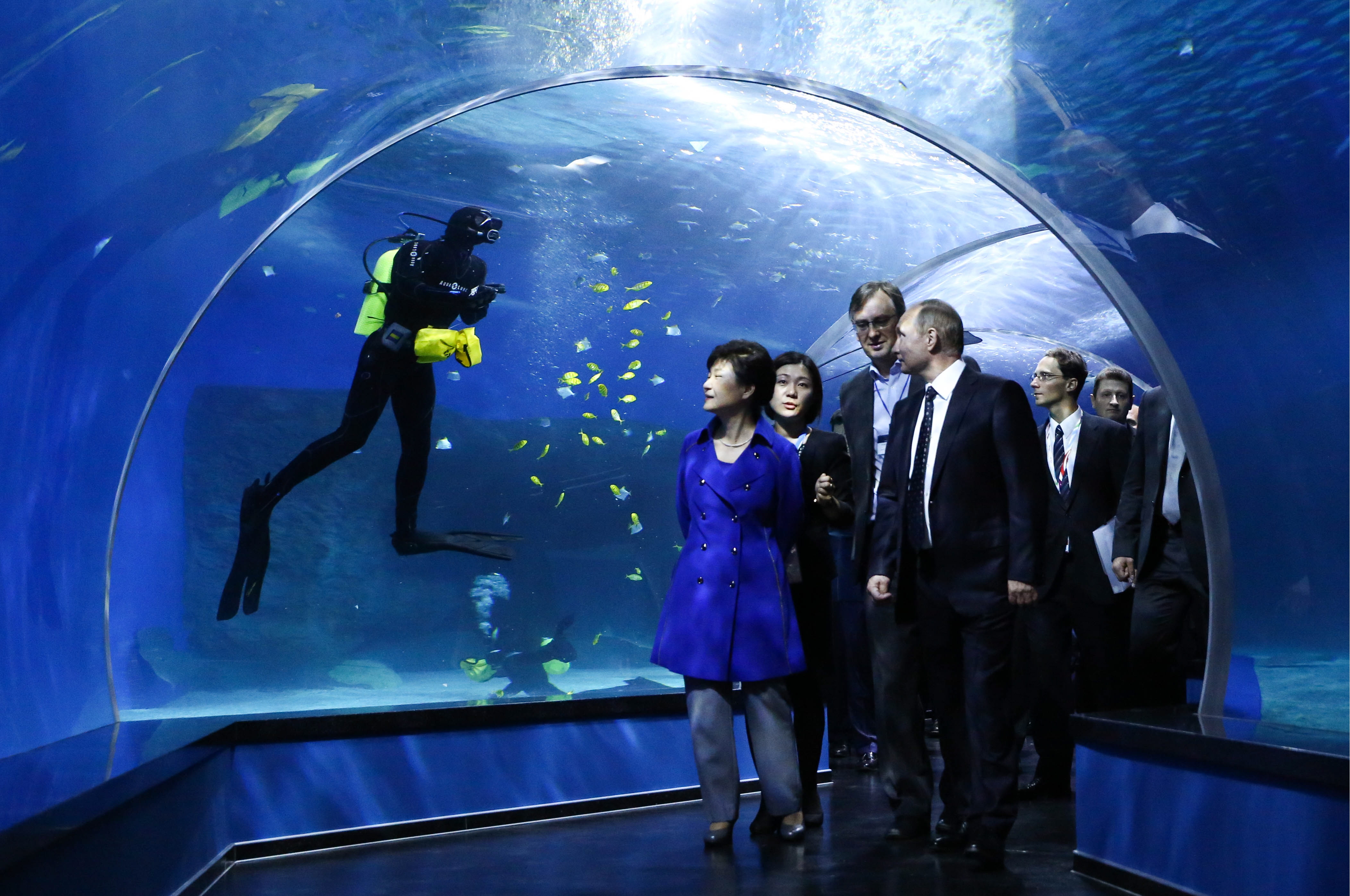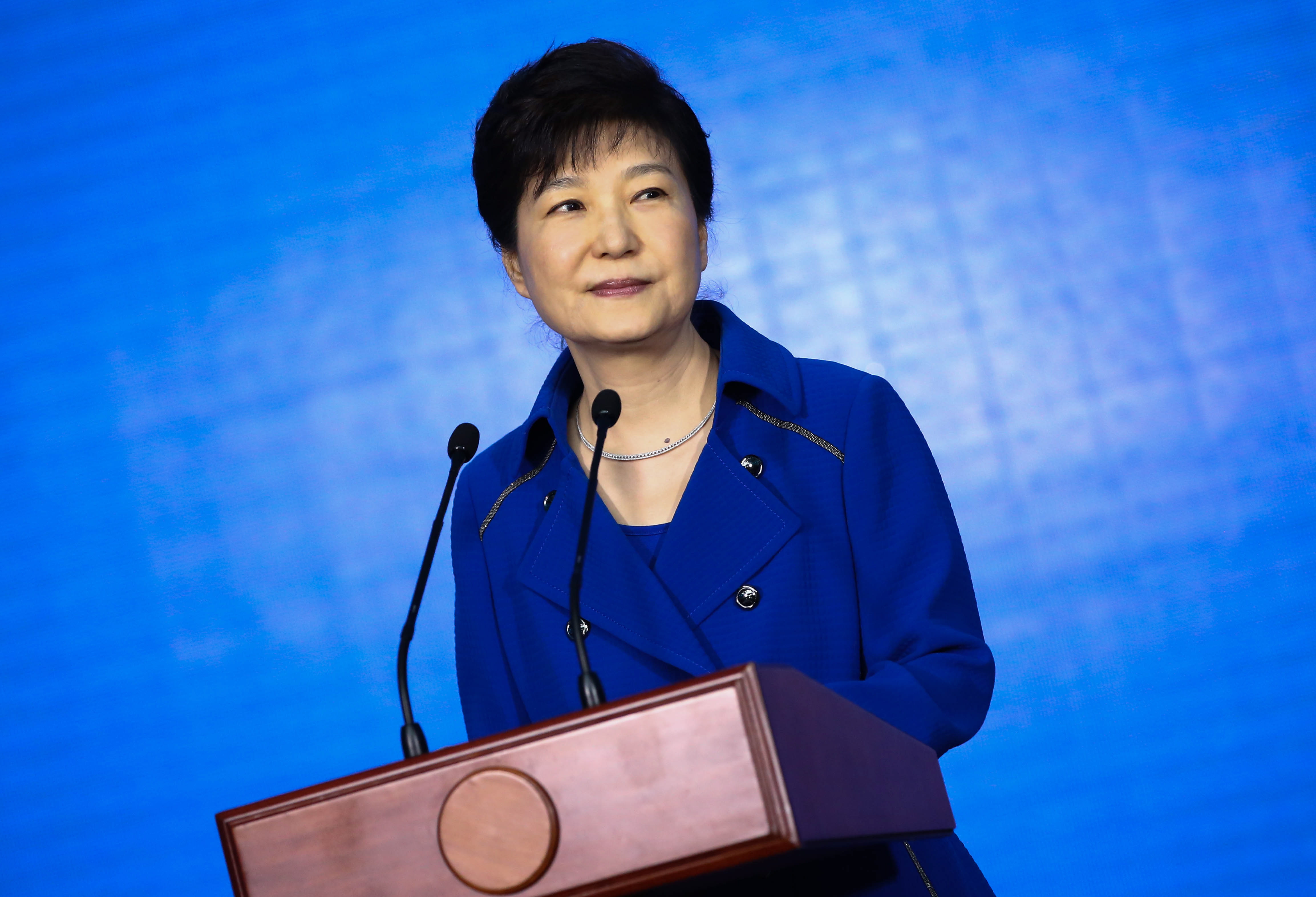
Park Geun-Hye (L) and Vladimir Putin (R).
Alexandr Rumin/ TASSThe South Korean delegation at the Eastern Economic Forum (EEF) in Vladivostok was much smaller and kept a lower profile than its Japanese counterpart. Until the last moment, the forum’s organizers were unsure if President Park Geun-Hye would address the business dialogue.
While South Korea was happy that it signed 20 agreements with Russia during the forum, Moscow was irked with the President Park’s sharp focus on the North Korean nuclear program.
Georgy Toloraya, East Asia Section Director at the Institute of Economics of the Russian Academy of Sciences, had the opportunity to interact with both the Russian and South Korean sides on the sidelines of the EEF. In an interview with RBTH he talks about Russia-South Korea ties and the obstacles that come in the way of greater economic engagement between the two countries.
Presidents Putin and Park met for the first time in 2013. How important was their recent meeting in Vladivostok?
The meeting (in Vladivostok) was their first in three years. It was important that (Park’s) visit finally took place.
 South Korea President Park Geun-hye in Vladivostok. Source: Alexander Rumin/ TASS
South Korea President Park Geun-hye in Vladivostok. Source: Alexander Rumin/ TASS
The South Korean side was willing to highlight the positives and not discuss the problems, and to seek opportunities for cooperation and, above all, economic cooperation with the Russian Far East. If the visit did not take place now, President Park may have never visited Russia.
Why did Russia not raise the issue of the placement of American missile defense system in Korea?
Russia decided to not aggravate the problems. Conversations about THAAD in Korea were quiet and deliberately not included in public statements. The Koreans greatly feared the contrary ahead of the forum.
It was unfortunate that Park Geun-Hye did not refrain from public criticism of North Korea. Russia shares the position that nuclear program of North Korea is unacceptable, but an economic forum, in my opinion, is not the best place for the public discussion of this issue. Japan never spoke about its relationship with China and other regional issues.
Russia and South Korea signed a number of cooperation agreements. How important is this?
The positive thing is that the South Koreans publicly expressed their desire to deepen economic cooperation with Russia. But agreements of intent do not always mean investment obligations. And to be honest, I hold a pessimistic attitude when it comes to how and when most of these agreements will be implemented.
The basic factor that will hinder executing these agreements is a drop in demand for imports in Russia, and the sanctions of the West against Russia. Despite all the claims, South Korea is forced to follow this regime, which imposes restrictions in finance and investment.
No amount of good intentions can undo this reality. But the attitude is positive. Maybe this will help to implement the mineral fertilizers plant project and bring about cooperation in the Zvezda shipyard in Bolshoi Kamen. South Korea also shows interest in Arctic projects.
Park said that South Korea wants a free trade agreement (FTA) with the Eurasian Economic Union (EAEU). Is it beneficial for Russia?
Any FTA between the EAEU and South Korea is likely to only have symbolic value. The EAEU is unlikely to make big concessions for South Korea’s most important export items such as cars and electronics since other exports will ask for similar concessions.
The FTA will be limited in scope, because Russian commodities are duty exempt now. Here you need to consider and negotiate.
The South Korean media’s reports about the results of the EEF are positive, while the Russian side seems irritated with what happened vis-à-vis South Korea. Why is that?
For the South Koreans it was important to have a demonstration effect. It was important to show that they enjoy improving relations with a great power against the backdrop of difficult relations with China. Russia needs tangibles from South Korea. But South Korea cannot give any tangibles for objective and subjective reasons. These include U.S. government pressure on businesses, Russian bureaucratic barriers and the general economic situation. Therefore, the South Korean media may write positive articles, but this does not mean that something will start happening in reality.
Is North Korea’s nuclear program actually preventing the development of Russia-South Korea economic relations?
The South Koreans do not hide the fact that the main objective of Park Geun-Hye is the isolation and eventual fall of the North Korean regime. Seoul expects Russia to help pressure North Korea.
I don't want to comment on the validity of this course. But I want to say that Russia is far from being satisfied. A solution to the nuclear issue on the Korean Peninsula must be achieved, but not at the cost of destroying the North Korean state and a possible war at our borders.
Persistent attempts to raise the North Korean issue are annoying Russian politicians and businessmen.
Here is a simple example. We have been trying to establish tripartite infrastructure projects and specifically the Khasan-Rajin rail transport project. For two years, the South Koreans promised to join the project by buying shares of the Russian-North Korean company.
But after the nuclear tests in early 2016 Seoul unilaterally abandoned this project. At the EEF, when I asked in the South Korean side about the prospects of trilateral projects, they said North Korea needed to be persuaded. But North Korea is surely not against such projects!
All rights reserved by Rossiyskaya Gazeta.
Subscribe
to our newsletter!
Get the week's best stories straight to your inbox